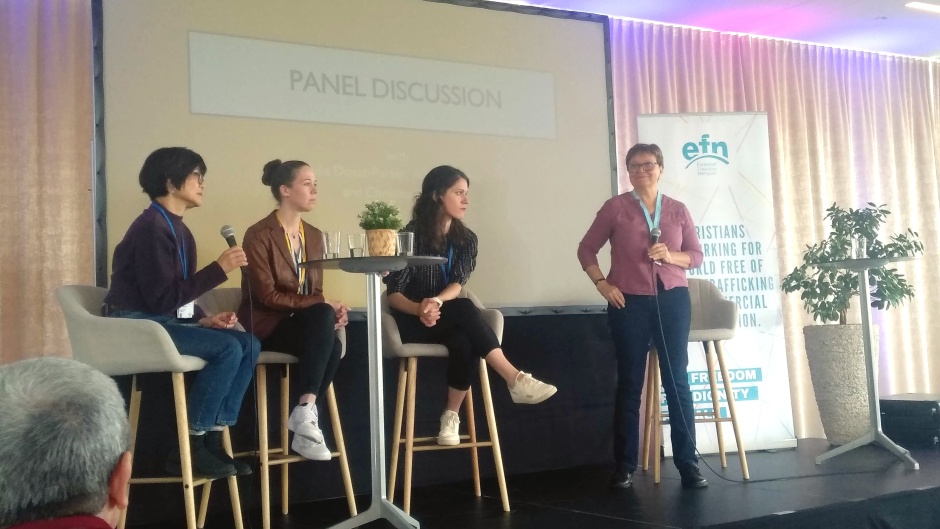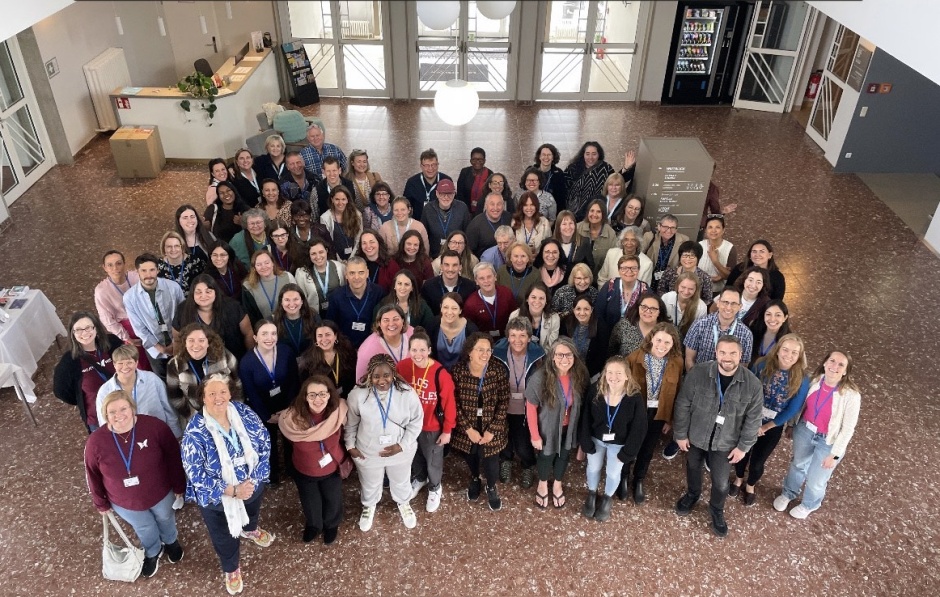Standing in the gap: Evangelical responses to human trafficking and prostitution in Europe
A report from the European Freedom Network Bridge 2025 Conference held in Austria.
HORN (AUSTRIA) · 01 MAY 2025 · 15:30 CET

From March 24th to 28th, the 2025 Bridge conference organized by the European Freedom Network (EFN) brought together representatives from over 20 countries in Horn, Austria.
With a focus on networking, training, and prayer, the event created space for meaningful dialogue and strategic planning among organizations and individuals working to combat human trafficking and sexual exploitation across Europe.
Freedom Business and the path to reintegration
A recurring theme at the conference was the need to offer survivors of human trafficking viable economic alternatives.
The Freedom Business Alliance presented models of small-scale businesses that not only empower survivors but also provide sustainable financial support for organizations engaged in restoration.
One example that stood out was Hope for the Future, a ministry based in Austria and founded by Andrea Standenherz. Entirely led by evangelical Christians, the organization works with women leaving prostitution, offering them a path to rebuild their lives through vocational training and work placements. Partnerships with businesses and volunteers—some not necessarily evangelical—play a crucial role in this transformation.

Group photo of the European Freedom Network (EFN) Bridge conferece 2025 in Horn, Austria. / Photo: EFN. Technology, AI and digital outreach
Technological tools, including Artificial Intelligence, are increasingly central to the fight against trafficking. Organisations such as Stop the Traffick (Italy) presented how anonymized and encoded data from rescued victims is used to trace trafficking patterns, identify hotspots, and detect criminal networks.
Other ministries like Justice Project (Germany) and Lona Project (Switzerland) demonstrated how they engage in online outreach to women in prostitution, often through encrypted communication and specialized platforms.
These efforts allow them to identify underage victims, respond to cries for help, and build safe connections. In the Netherlands, this method became particularly relevant post-COVID, as prostitution shifted largely to private apartments and online advertisements.
Advocacy and the Nordic model
Advocacy efforts were presented by figures such as Julia Doxat-Purser and Caroline Sanders, who are lobbying at the EU level for the adoption of the Nordic Model—a legal framework that criminalizes the buyer of sex rather than the person being sold.
This model is already in place in countries like Sweden, Norway, France, and Ireland, and has been shown to reduce demand.
In contrast, countries like Germany, Austria, the Netherlands, Switzerland, and Greece have legalised prostitution, often making it indistinguishable from any other job.
This has opened the door to large-scale exploitation, particularly of migrant women, including those from North Africa, Eastern Europe, and Asia.
Strikingly, in Switzerland, immigrant women face major bureaucratic hurdles to access most jobs—but none if they choose prostitution.
Data, migration, and hidden realities
A powerful quote resonated throughout the conference: “Data are people’s stories, even when quantified”.
This was reinforced through a variety of sessions that emphasized how aggregated information can help identify shared traits among victims—such as age, language, and method of recruitment—and ultimately support prevention strategies.
Participants also discussed the link between migration and sexual exploitation. Many women entering Europe with hopes of a better future end up in prostitution—either by deception or as a last resort.
Ministries like The Strawberry Girls (Spain) are working directly with Moroccan women and their children, publishing resources to help them navigate cultural transitions.
Integrated responses and strategic partnerships
Whitney Gerdes (Refugee Highway Partnership – RHP) challenged attendees to embrace a networked response.
Trafficking, migration, and child exploitation are deeply interconnected, requiring collaboration across platforms such as EFN, WWO (World Without Orphans), and RHP.
Many victims cross borders, making it essential for ministries to share data and coordinate efforts. Some teams have also succeeded in forging strong partnerships with local authorities.
In Germany, for example, the Justice Project collaborates with the criminal police, health services, and legal teams to ensure victims receive proper care and protection.
Seeds of hope and ongoing commitment
The Talita Project (Sweden), rooted in 19th-century abolitionist movements, continues to inspire. Other initiatives, like Heart Wings (Switzerland), bring politicians into the heart of red-light districts to advocate for legal change.
Meanwhile, volunteers across Europe—men and women, young and old—offer their time, skills, and love to serve those often hidden from public view.
In Portugal, the Evangelical Alliance remains committed to raising awareness in schools, churches, and communities. Because, as one speaker reminded us: “You cannot stop what you do not see.”
The EFN Bridge 2025 conference was not just a gathering—it was a call to action. The reality of human trafficking and sexual exploitation in Europe demands more than awareness. It calls for prayer, courage, collaboration, and, above all, compassion.
Join us to make EF sustainable
Learn all about our #TogetherInThisMission initiative here (English).
Published in: Evangelical Focus - europe - Standing in the gap: Evangelical responses to human trafficking and prostitution in Europe
